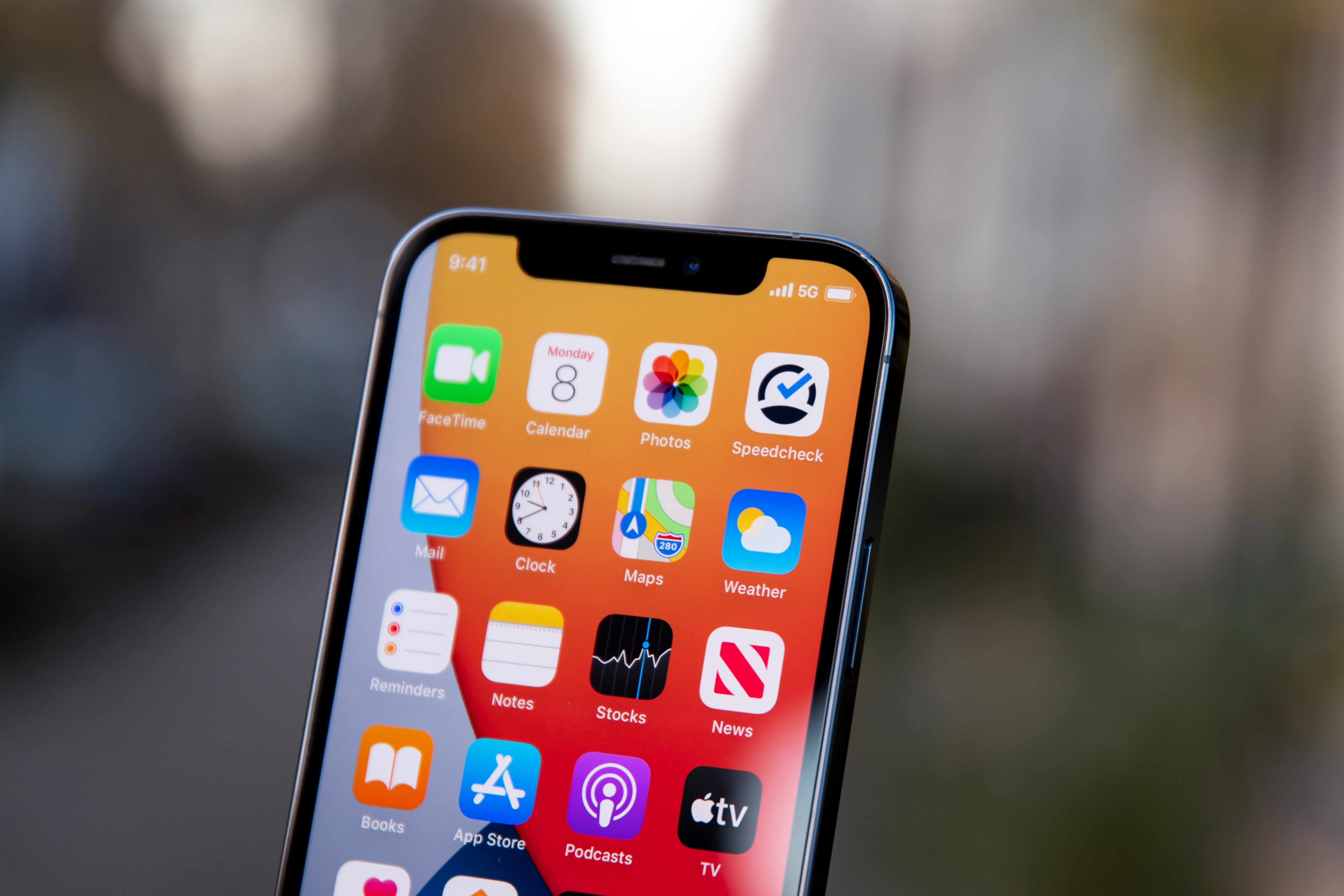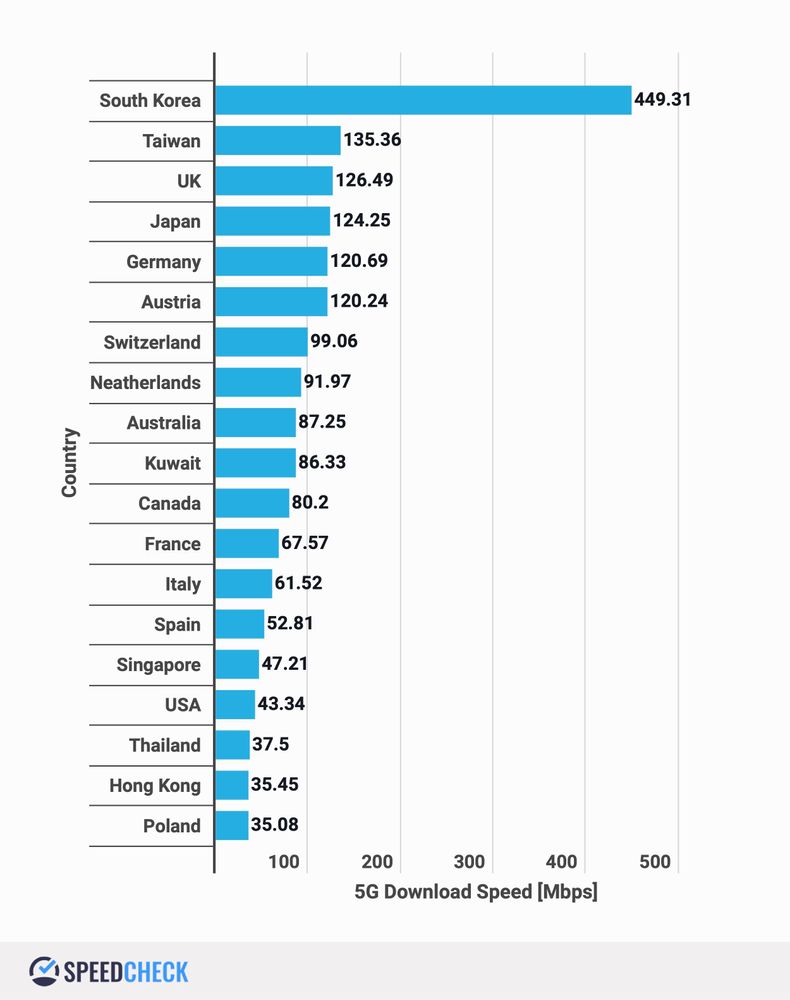U.S. Lags Way Behind South Korea in 5G Speeds
New research from Speedcheck finds that 5G speeds are 10X faster in South Korea

NEUBEUERN, Germany—A new report from Speedcheck finds that the U.S. is lagging way behind other countries in terms of 5G, with South Korean 5G download speeds 10 times faster than the U.S.
Overall, the U.S. ranked 16th in Speedcheck’s list of the fastest 5G speeds in countries around the world.
“South Korea ranks No.1 with 449 Mbps in 5G median download speeds, based on tests conducted during February-March 2021 by Speedcheck,” the report noted. “On the other hand, 5G operators in the U.S. provide only 43.4 Mbps, ten times slower than Korean operators.”
The report also noted that U.S. consumers are paying slightly lower prices per Gigabyte than South Korea but that U.S. consumers are willing to pay higher prices if it meant faster speeds.
The average price per Gigabyte in the U.S. is around $1.5 compared to $2.3 in South Korea, the report noted but “our study also indicates that affordability is not a constraint; US citizens could pay more if they can get faster speeds.”
One major factor in the speed gap between the two countries is that the South Korean government quickly made mid-band spectrum available to telcos. “The huge gap….could have been avoided by allocating a mid-band spectrum in the range of 3.5 GHz and following an aggressive rollout strategy by covering a more extensive U.S. population, with much more 5G sites,” the report noted.
The report also noted that U.S. telcos have been misleading and confusing in their marketing of 5G, which has lowered consumer expectations and reduced pressure on the telcos to deliver faster speeds.
Get the TV Tech Newsletter
The professional video industry's #1 source for news, trends and product and tech information. Sign up below.
“The US operators have misled Americans since 2019 about the capabilities that 5G can offer,” the report complained. “Remember AT&T claiming 4G as 5G, with its new logo and icon 5GE. Still today, the U.S. carriers are confusing the public with different names of 5G. For instance, AT&T uses three different nomenclature for 5G, such as 5GE, 5G and 5G plus. The same is the case with Verizon, which has two flavors of 5G, namely 5G Ultrawideband and 5G Nationwide. These are all the marketing tactics to hide U.S. operators' incapability, which still fail to provide fast and seamless 5G like South Korea.”
The full report is available here.

George Winslow is the senior content producer for TV Tech. He has written about the television, media and technology industries for nearly 30 years for such publications as Broadcasting & Cable, Multichannel News and TV Tech. Over the years, he has edited a number of magazines, including Multichannel News International and World Screen, and moderated panels at such major industry events as NAB and MIP TV. He has published two books and dozens of encyclopedia articles on such subjects as the media, New York City history and economics.

